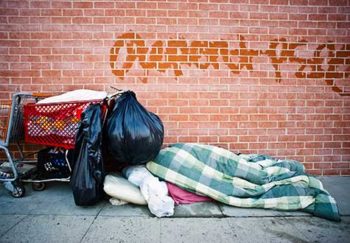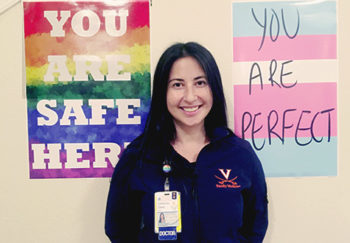
These parents share what it meant to them to be able to co-nurse, and why they chose to induce lactation.
If your sexual orientation or gender identity veers from the standard norms, you face very specific health risks and barriers to healthcare. Understanding the LGBTQ+ (also sometimes called LGBTQIA+ — read about these terms) health issues you face can help you care for and advocate for yourself. Or for someone you love.
Being gay, trans, gender nonconforming, or nonbinary doesn’t just affect who you date or marry. Your identity can affect every aspect of your life. Stigma, bias, discrimination — obvious or subtle — shadow your experiences at school, work, place of worship, in public spaces, in court, and at the doctor’s office.
Over 50% of all LGBTQ+ people have experienced discrimination while visiting a healthcare provider. As a result, many people in the LGBTQ+ community:
These behaviors of not being open with a doctor or nurse can lead to misdiagnoses and overlooked symptoms. Plus, LGBTQ+ people tend to miss out on preventative screenings that can catch and treat cancers or other chronic or life-threatening diseases.
And so, it’s no surprise that national studies show:
According to a 2021 Gallup poll, 7% of people in the U.S. identify as LGBTQ+. That percentage soars to 20% for Gen Z (born between 1991-2003).
More than ever, we need to address and reduce the stigma that damages LGBTQ+ health. All of us can play a role in this critical effort.
Being an ally for the LGBTQ+ community means learning, listening, and supporting with action. Show up, speak up, and stand up when needed.
Go to the doctor with your LGBTQ+ loved one. Even the most confident person can feel powerless in a clinic.
Check out and share with others:
Know your terms:
Celebrate:
Watch and read videos and articles on LGBTQ+ health:
Know where to seek transgender healthcare:

These parents share what it meant to them to be able to co-nurse, and why they chose to induce lactation.

Lactation consultants help families reach the feeding solutions that make the most sense for them. Here are some of the ways they help the LGBTQ+ community.

At UVA Health, we're breaking down barriers to healthcare for our LGBTQ+ community members. See how in this Q&A.

Looking for LGBTQ+ friendly healthcare? Dana Redick, MD, outlines the efforts she takes to create an inclusive environment for all.

The Human Rights Commission recognized 3 UVA Health hospitals for providing fair, inclusive care for LGBTQ patients. Learn how we're making a meaningful difference.

Teenage mental health has worsened over the past 2 years. Here's why and what parents can do.

For years, Charlottesville resident Charley Burton longed for a body that fit his gender identity. Here, he shares his story with us.

Staying isolated at home is putting some people at greater risk for mental illness and domestic violence. Get a list of resources to help you stay safe and feel supported during quarantine.

What's hurting us most? UVA experts explain the relationship between wellness and factors of race, food, and class. Find out which social determinants of health most impact the health of our community here in the Charlottesville area.

LGBTQ people often face or fear bias when seeing the doctor. So they don't go, even though they're at high risk for obesity, heart disease, and other stress-related conditions. Providers describe what they're doing to make UVA a safe space to get care.
Get stories & health tips every week